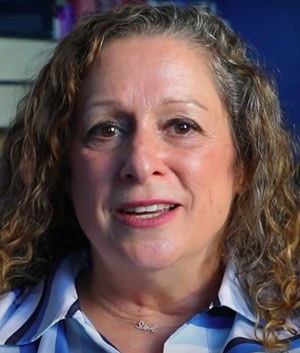

The Walt Disney Company ‘Needs To Be Saved From Itself,’ Says Abigail Disney
Abigail Disney, an outspoken critic of the company that bears her name, has subjected it to her strongest criticism yet.

The Walt Disney Company’s share price may be at an all-time high, but in the first half of a two-part interview with KCRW’s The Business podcast, Disney argues that its internal culture will prove self-destructive in the end. “I don’t believe that the company and the magic can survive this kind of corporate behavior,” she says. “I don’t think that the brand, as solid gold as it is, will last … I think the company needs to be saved from itself.”
Disney is the granddaughter of Roy O. Disney, brother of Walt and co-founder of the company, and daughter of Roy E. Disney, a longtime executive at the company who went on to lead a successful shareholder revolt. She has inherited her father’s dissident streak, regularly calling out the company for policies she sees as wildly unjust — particularly concerning pay.
In the interview — the first of two parts — Disney discusses The Walt Disney Company’s acquisitions, its streaming strategy, its handling of the closure of its parks, the characters of former CEO (and now executive chairman) Bob Iger and his replacement Bob Chapek, and more. Here are five of her more memorable comments:
- On Bob Iger: “A good manager in the Ebenezer Scrooge sense, and not in the sense of a person who sees everyone who works for him as a full human being with equal right to dignity.”
The main thrust of Disney’s attacks on her namesake company is the enormous gap between executive pay and the salaries of the lowest-paid employees. In her view, the coronavirus has exacerbated this crisis: she cites the mass layoffs at the parks, which has left some former employees literally homeless.
Yet she characterizes the widening pay gap as a part of Iger’s management style: “One reason Iger is being paid so handsomely is … because of the margins — because he’s been able to push the cost of running the parts down, while also milking it for massive amounts of profit.”
- On her grandfather: “Are you willing to put everything you have in hock again and again and again and again, every single time with the chance of losing everything, to keep this company going? That’s what my grandfather did.”
In Disney’s view, Roy O. Disney merited his generous pay because of his boldness as an entrepreneur. She contrasts him with Iger, who “spent his lifetime on a salary.” She adds that her grandfather would never have taken a $66 million pay package like Iger, because “people did not do that then.”
- On the Fox acquisition: “I think [The Walt Disney Company is] going to digest [Fox] better than I was expecting they would.”
Referring to Iger’s string of high-profile acquisitions — Pixar, Marvel, Lucasfilm — Disney compares the company under his tenure to a “machine” that is fed “creative product” and produces spin-off products, like hotels and theme parks.
“But if you don’t keep feeding it creativity,” she adds, “it’s really — there would have to have been a point at which there was too much in the machine, or the machine was too complicated, and I kept wondering whether Fox was going to be that.” She admits that she may be wrong, suggesting that Disney’s streaming platforms are a new part of the machine needing to be fed.
- On Bob Chapek: “It was extremely disappointing to see a person who never held a creative job in his life take over the company.”
Disney is outspoken about the tension between executives, whose aim is to mitigate risk, and creative staff, who “can’t function” without risk. “You have to find executives of a special kind who can understand and respect what risk means, and figure out a way to make it live inside a profit-making company.” She strongly implies that she doesn’t consider Chapek to be such an executive.
- On regulation: “It’s not like the Democrats are really looking at pushing back on corporations in a way that’s meaningful.”
Disney is skeptical of Joe Biden’s willingness to regulate the likes of The Walt Disney Company, pointing out that he was a senator from Delaware (whose tax regime is favorable to corporations) and that Iger is a big Democrat supporter. She adds that she’s more optimistic about pressure coming from within the business community, “where there are people thinking differently about this.”

.png)